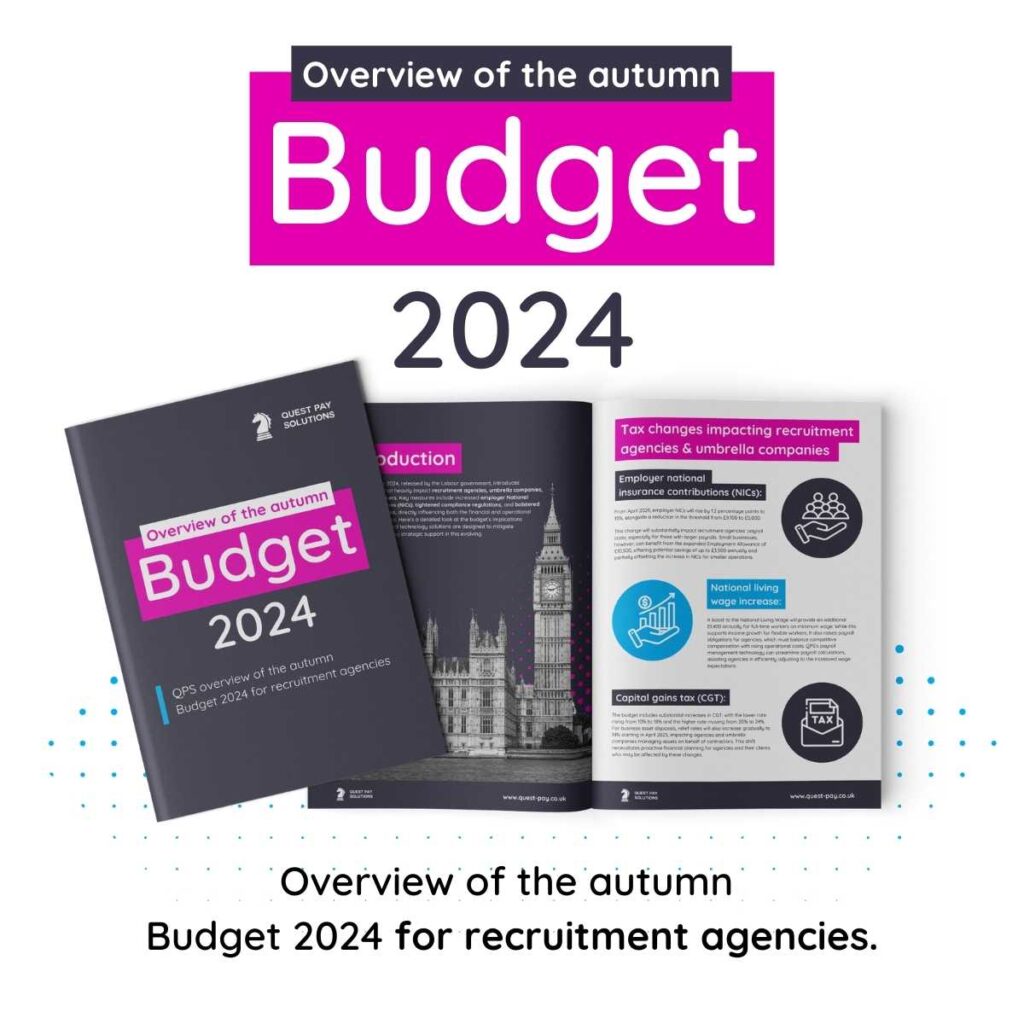Today, the Bank of England announced a significant reduction in the base interest rate, aiming to ease financial pressures amidst tightening economic conditions. For recruitment agencies and contract workers, this rate cut has the potential to bring both opportunities and challenges. While borrowing costs may drop, the lowered interest rate could affect earnings from savings, making it crucial to adapt financial strategies. Here’s how this change impacts the recruitment sector and what both agencies and contract workers need to know to make the most of the current climate.
How the interest rate cut affects recruitment agencies
Recruitment agencies operate within a highly competitive market, and today’s rate cut opens new doors to enhance their financial resilience and expand their reach. Here are the key areas where agencies may feel the impact:
1. Lower borrowing costs for growth and technology investments
With the reduction in interest rates, agencies have an opportunity to secure more affordable loans to invest in growth, infrastructure, and technology. Many recruitment agencies may consider expanding their operations, enhancing digital recruitment tools, or improving payroll and compliance systems. By taking advantage of these lower borrowing costs, agencies can focus on long-term improvements that help streamline processes and attract top talent.
2. Supporting client recruitment budgets
With financing becoming cheaper, some businesses may increase their hiring budgets as they look to grow amidst a supportive fiscal environment. Recruitment agencies that specialise in sectors poised for expansion—like tech, healthcare, and remote work support—may find themselves better positioned to meet increased demand from clients investing in workforce expansion or skills training.
3. Strategic cash flow management
For agencies with significant payroll outflows, managing cash flow efficiently is paramount. The rate cut reduces the cost of short-term borrowing, which agencies can use as a buffer to handle high-volume payrolls. This can be especially beneficial during periods when agencies are waiting on client payments but still need to pay their contract workers promptly.
Implications for contract and temporary workers
Contract workers, especially those in flexible or temporary roles, may also experience a mixed impact from the interest rate cut. Here’s what it means for them:
1. Personal debt becomes more affordable
For contract workers with personal loans or credit card debt, the reduced interest rate could help lower repayment costs. This reduction can ease monthly financial burdens, particularly for workers managing variable income. However, it’s also a reminder to manage personal finances proactively, as interest rates can fluctuate based on economic conditions.
2. Reduced returns on savings
While lower borrowing costs offer benefits, they may also impact income derived from savings. Contract workers who supplement their income with interest-based savings may need to seek alternative investment options if rates continue to decline. This change reinforces the value of securing steady income from contract work, especially in uncertain economic periods.
3. Increased hiring activity could mean more contract opportunities
Lower interest rates are intended to stimulate business investment, which can have positive ripple effects on hiring. Recruitment agencies may see an uptick in demand for flexible, skilled workers, particularly in sectors that rely on adaptable workforces. Contract workers should stay prepared to seize new opportunities, especially in industries that prioritise digital transformation, healthcare, and professional services.
Strategies for recruitment agencies to leverage the interest rate cut
With a new economic landscape in play, agencies can implement several strategies to capitalise on these lower rates:
1. Invest in technology for efficiency and compliance
The time is ripe for agencies to upgrade their digital infrastructure, from Applicant Tracking Systems (ATS) to payroll management tools. Improved technology not only enhances operational efficiency but also ensures compliance with evolving regulations, such as PAYE adjustments for contingent workers expected in 2026.
2. Expand into high-growth sectors
By focusing recruitment efforts on industries that are likely to benefit from lower borrowing costs, agencies can align their services with sectors that anticipate growth. Agencies may consider expanding their expertise in sectors such as fintech, renewable energy, and remote work services, where demand for contract workers is projected to rise.
3. Enhance financial resilience
A robust financial strategy can help agencies thrive in a variable economic environment. Agencies should consider setting up short-term credit lines or contingency funds, supported by today’s lower rates, to manage cash flow during slow payment cycles or market fluctuations.
Conclusion
The Bank of England’s latest interest rate cut presents a unique mix of opportunities and challenges for the recruitment sector. Recruitment agencies stand to benefit from lower financing costs, making it an ideal time to invest in growth and operational upgrades. For contract workers, the economic environment may provide more work opportunities but also encourages careful financial planning.
As the recruitment sector adapts to these new conditions, agencies and contractors alike can position themselves for success by staying financially agile, ready to meet increased demand, and strategically investing in long-term growth.
About us
At QPS we are dedicated to helping recruitment agencies and contract workers navigate the ever-changing landscape. Our expert insights and services are tailored to support your growth and compliance needs. Get in touch with us today to learn more about how we can help you thrive in today’s economic climate.
You may also be interested in...



